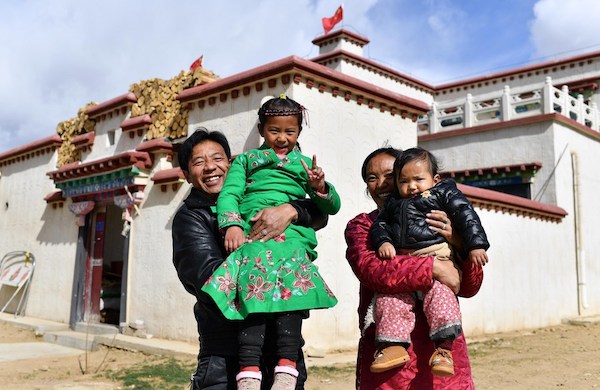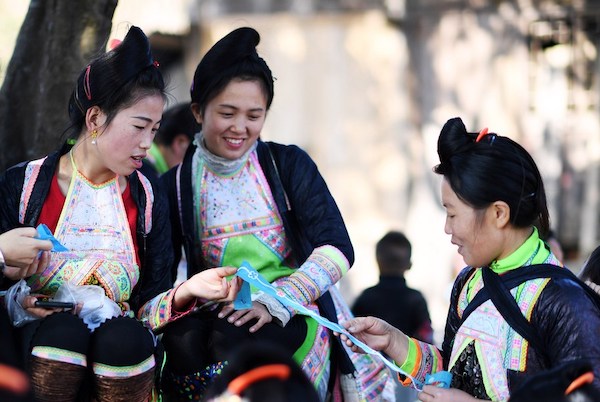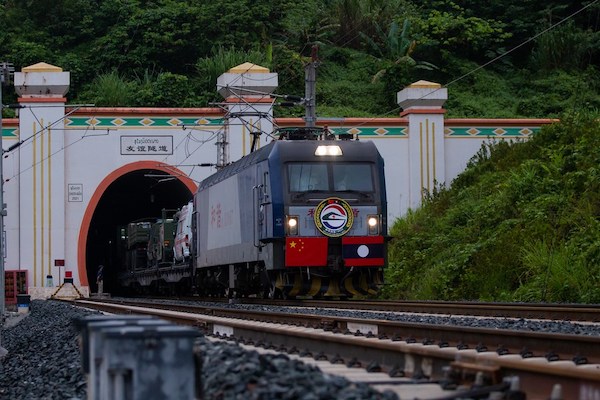China's development is an inspiration for the world
- "For China to embrace common prosperity, to establish a society of greater fairness, greater equity, that is a very important message not only to China, Chinese people but to the world as well," British scholar and political commentator Martin Jacques said.
- "The modernization of a small number of Western countries was based on the exploitation, oppression and colonization of almost the entire world. China is not developing by exploiting any other country; China is developing itself and modernizing itself, and at the same time helping other countries to develop and modernize," said Keith Bennett, a China specialist and vice chair of the 48 Group Club.
- "We are in an era of declining economic globalization and fragmentation, particularly in the Western world. And from that point of view, I think that the remarkable example that China shows is how to strengthen and provide stability," said Martin Albrow, a fellow of the British Academy of Social Sciences.
LONDON -- China's development achieved through meticulous planning and diligence has raised the living standards of its people and inspired the rest of the world, a panel of British experts on China has said.
In a fragmented world with "declining economic globalization," China is providing much-needed "stability, predictability and credibility," they concurred at a symposium earlier this week hosted by the Chinese Embassy in Britain.
GLOBAL INSPIRATION
At the symposium following the recently concluded 20th National Congress of the Communist Party of China, the experts said the world could take a leaf out of China's book of long-term planning. The landmark congress has charted the course for building a modern socialist China in all respects for the next five years and beyond.
"We don't have any long-term central planning in most of the economies of the West, and that makes the greatest difference in the ability of a country to anticipate, to plan and put resources in place, to take advantage of the opportunities, to raise the standards of living of the people," said Stephen Perry, chair of Britain's 48 Group Club.
Keith Bennett, a long-term China specialist and vice chair of the 48 Group Club, said the report to the 20th CPC National Congress is "encyclopedic in its scope and contents."

Local residents pose for a photo in front of their new house in Gurum Town of Lhasa, southwest China's Tibet Autonomous Region, April 2, 2020. (Xinhua/Zhan Yan)
Bennett spoke highly of the report's emphasis on the Chinese path to modernization of a huge population, of common prosperity for all, of material and cultural-ethical advancement, of harmony between humanity and nature, and of peaceful development.
"The drive towards common prosperity will hold valuable lessons not only for developing countries but for developed countries too," he said.
British scholar and political commentator Martin Jacques also highlighted China's pursuit of common prosperity, lamenting how Western countries have never taken it seriously.
"For China to embrace common prosperity, to establish a society of greater fairness, greater equity, that is a very important message not only to China, Chinese people but to the world as well," he said.
China announced in 2021 that it had lifted the final 98.99 million impoverished rural residents living under the current poverty line out of poverty, and removed all 832 impoverished counties and 128,000 villages from the poverty list.

Women of the Miao ethnic group study embroidery at the workshop in Basha Village of the Miao ethnic group of Congjiang County, southwest China's Guizhou Province, Nov. 13, 2020. (Xinhua/Yang Wenbin)
"Judging by China's performance on extreme poverty, which is extraordinary, then China's impact on the world as it seeks to create a fairer society will be, in an era of growth inequality, extraordinarily important," Jacques said.
"STABILITY, PREDICTABILITY, CREDIBILITY"
China's path to modernization featuring peaceful development differs from that of many Western countries. Beijing seeks growth not by oppressing others but by developing and modernizing itself, the experts said.
Before the symposium, the panel of experts toured a photo exhibition in the embassy that showcased China's achievements over the past decade. Bennett said the images offered a glimpse of China's self-reliance and goodwill.
He said he was touched the most by the picture of late Chinese agronomist Yuan Longping, known as the "father of hybrid rice" who saved millions of people from dying of hunger, as well as a photo of the Chinese-built China-Laos Railway, which he believes will promote economic growth in "the world's most bombed country."

The medical train of the People's Liberation Army of China crosses the border with Laos by running through the Friendship Tunnel of China-Laos Railway, and arrives in the border town of Boten in Laos on July 19, 2022. (Photo by Kaikeo Saiyasane/Xinhua)
"The modernization of a small number of Western countries was based on the exploitation, oppression and colonization of almost the entire world. China is not developing by exploiting any other country; China is developing itself and modernizing itself, and at the same time helping other countries to develop and modernize," Bennett told Xinhua.
Citing the Belt and Road Initiative and the Global Development Initiative proposed by China in 2013 and 2021 respectively, Bennett said, "China is the only major country that has put forward a series of realistic and well-thought-out proposals and ideas" to tackle issues such as development, sustainability, the fight against poverty and climate change, and that "the majority of countries and people of the world very much welcome this."
Martin Albrow, a fellow of the British Academy of Social Sciences, said China is delivering "stability, predictability and credibility, which the world in its fragmenting state needs."
"We are in an era of declining economic globalization and fragmentation, particularly in the Western world. And from that point of view, I think that the remarkable example that China shows is how to strengthen and provide stability."
"The stability generates expectations," Albrow said. "What China says it does."

Ministry of Justice of the
People's Republic of China
All rights reserved. Presented by China Daily.
京ICP备13016994号-2


